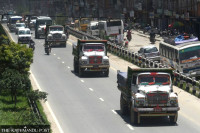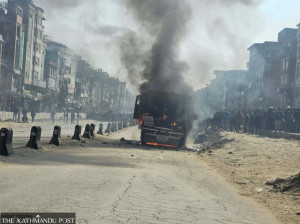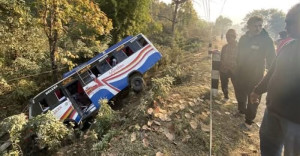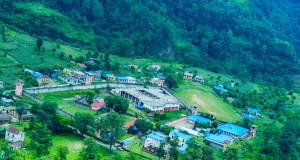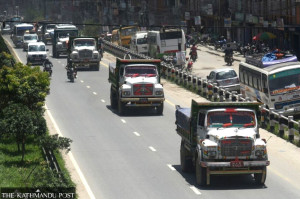Bagmati Province
Corruption complaints against local units on the rise in Makwanpur
In the first six months of the current fiscal year, the CIAA Hetauda office has received 841 complaints reporting abuse of authority.Subash Bidari
The Commission for the Investigation of Abuse of Authority in Hetauda has revealed the number of complaints of abuse of authority it received in the past three years. According to the report, the CIAA Hetauda office received 1,100 reports of abuse of power in the last fiscal year. In the first six months of the current fiscal year, it has received 841 complaints reporting abuse of authority. The number has seen a steady rise from a total of 798 complaints in the fiscal year 2016/17.
The Hetauda-based office has its jurisdiction in 11 districts of Bagmati Province—including Kathmandu, Bhaktapur, Makwanpur, Chitwan, Dhading, Nuwakot, Rasuwa, Sindhupalchok, Kavre, Dolakha and Ramechhap—and Bara and Parsa in Province 2.
According to Shivaraj Regmi, spokesperson at the commission, most of the cases entail irregularities at the local units.
“Bara, Parsa, Makwanpur and Chitwan are the districts that are most vulnerable to corruption at local units,” Regmi said. In Bara, 194 out of 300 reported cases were related to local units; 129 out of 208 in Parsa; 60 of 167 in Makwanpur; and 40 out of 82 in Chitwan.
“Most of the cases related to local units are of revenue embezzlement and corruption in budgets allocated to education and infrastructure development,” Regmi said. “When we receive complaints, we immediately go to the related office to investigate.”
According to Regmi, 17 percent of the complaints are sent for elaborate investigations. “If the cases can be resolved immediately, then we do that. If the nature of abuse of authority is serious, then it demands elaborate investigation,” Regmi said. “In the current fiscal year, 136 cases are of serious nature which are currently being investigated.”
Regmi added that the office also received many reports of abuse based on personal enmity and envy. “The opposition faction that loses the election often files complaints solely to create an obstacle in the working of the local units,” Regmi said. “But a significant portion of complaints warrant investigation and punishment.”




 9.7°C Kathmandu
9.7°C Kathmandu
